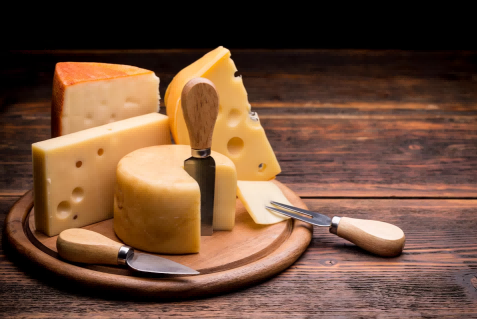 Market Insights
Market Insights
 10-07-2023
10-07-2023

The Switzerland name is almost synonymous with cheese, which is famous for
the bubbles that form during the production process. These bubbles leave their
signature holes in the blocks of cheese that are made. Switzerland is also known
for high-quality cheese varieties such as Gruyère and Emmentaler.
According to the Times, Beuret said in an interview published July 8 that the Switzerland may be eating more cheese than ever before - about 22.9 kilograms per person by 2022 - but the country's dairy farms are disappearing at a rate twice as fast as other agricultural producers.
"This year we will import more cheese than we export (in tons) for the first time," he said. "This is the result of a liberalization process that began in the late 1990s and has had a more profound impact than grains or meat."
Since the cheese market was liberalized in 2007, Switzerland cheese has lost 12 percent of its domestic market share, and Beuret says the current system has reached its limits.
"If we want to meet people's food needs effectively, we need to continue to produce milk nationwide," Beuret said. "Otherwise, we'll end up importing it, which is economically, socially and ecologically absurd."
The Times revealed that the prices agreed upon by supermarkets through a complex system of compromises do not cover the growing production costs of milk producers. A year ago, a survey conducted by the newspaper in collaboration with Heidi.news revealed that the country's largest retailers, Migros and Coop, were making very high profits on a range of dairy products.
Boret said that steps need to be taken to ensure that Switzerland can continue to produce cheese for its people.
"I believe that consumers are ready to understand that if we are going to continue to move in the direction of sustainable production, we need to be paid properly," Beuret said.
The change will be a marked shift, according to the international dairy industry, as Switzerland cheese exports have been growing last year, when they rose 7.9 percent.
Historically, Switzerland has protected its milk producers through subsidies and import controls, but in recent years has gradually opened its milk market to foreign competitors.
Category
Leave Message for Demo Request or Questions


 T-info
T-info T-discovery
T-discovery

 My
Tendata
My
Tendata Market Analysis
Market Analysis Customer
Development
Customer
Development Competitor
Monitoring
Competitor
Monitoring Customer Relationship
Customer Relationship





































































































































